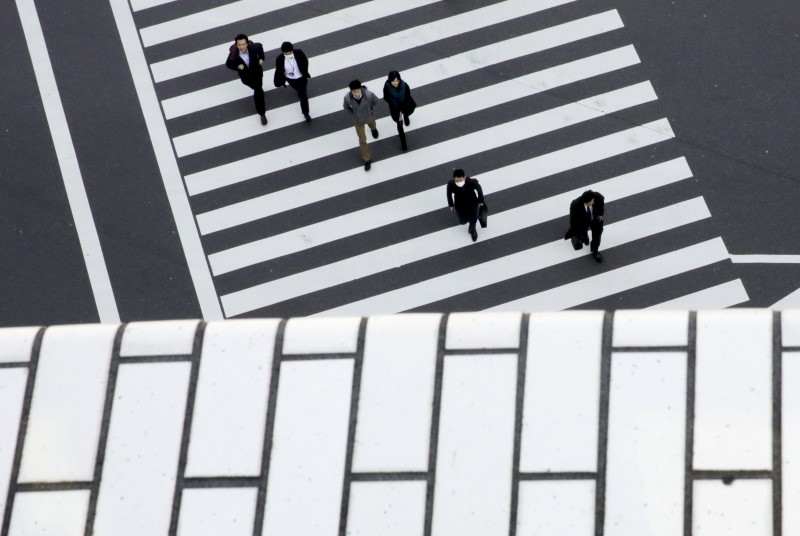By Tomo Uetake
TOKYO (Reuters) - Meiji Yasuda Life Insurance Co is ready to buy U.S. Treasuries at a yield of 3% without currency hedging, if the dollar falls below 135 yen, a senior company official said on Wednesday.
In an interview with Reuters, Yoshimasa Osaki, head of investment planning at one of Japan's Big Four private life insurers, said foreign-currency bonds with a yield of 3% or more look attractive when Japanese government bond (JGB) yields are so low.
"Even for U.S. Treasuries, 3% is quite a fortunate yield which you don't come across very often in the long run. So if the dollar slips below 135 yen, it will be a good chance to buy without a hedge," said Osaki.
Osaki said the firm thinks both Treasury yields and the dollar have already hit their peaks.
The 10-year U.S. Treasury yield rose to an 11-year high of 3.498% on June 14 and was last quoted at 2.78%, while the dollar/yen jumped to its 24-year high of 139.38 on July 14 before easing to around 136 yen.
"A weak yen itself is not a bad thing for us as it boosts the value of our foreign currency-denominated assets. But this time, we suffered losses from surging bond yields. All in all, the negative impact from higher yields slightly outweighed the benefit of a softer yen."
Osaki said Meiji Yasuda is not in a hurry to buy JGBs though it expects their yields to edge higher towards March, the end of this fiscal year, and April, when the Bank of Japan Governor Haruhiko Kuroda's term expires.
"The 30-year JGBs yielding 1.3% is not high enough. If the yields rise to 1.5%, we may buy more aggressively."
Currency hedged foreign bond investments had been popular among Japanese investors for years, but rising costs of dollar hedging due to higher U.S. interest rates are making that strategy increasingly unattractive.
"For now, we prefer to buy Italian and Spanish government bonds. The yields are attractive even on a currency-hedged basis. And we don't expect the hedging cost will rise much," Osaki said.
Meiji Yasuda Life's total assets stood at 43.5 trillion yen ($320 billion) as of March 31.
